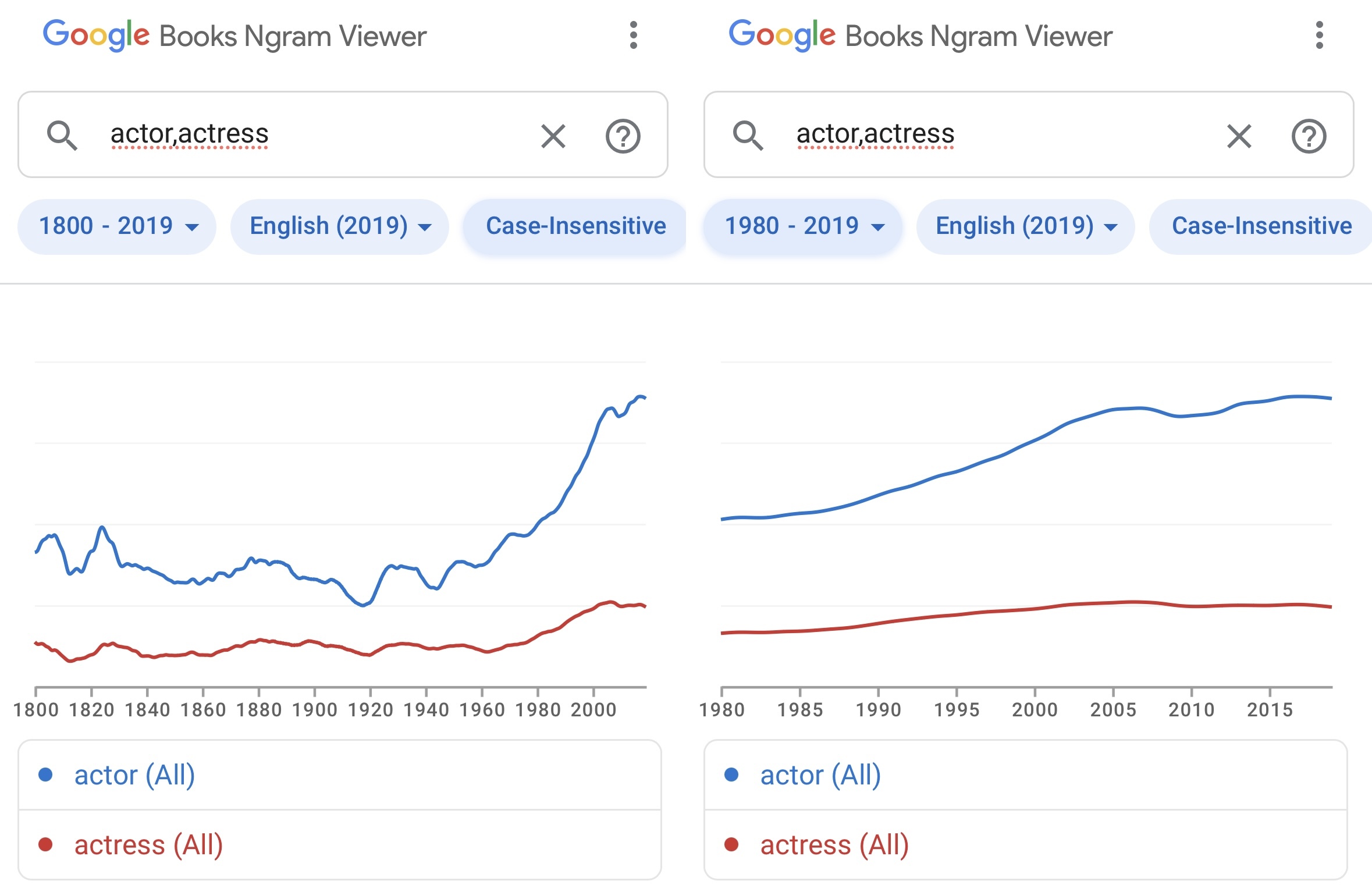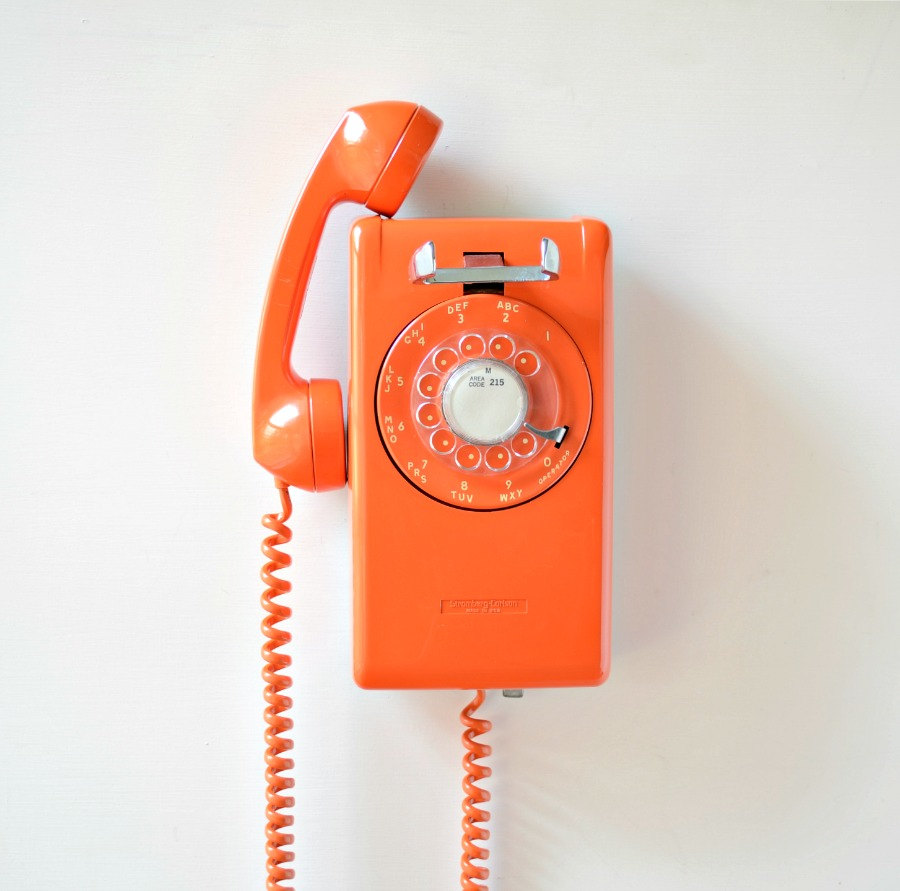“Je voudrais un baguette” I once asked in a parisian boulangerie. I don’t think anyone has looked at me with the same level of disgust before as the older lady selling the breads.
“Voilà, une baguette.”, the “une” flying through me like an icicle.
“Stupid fucking foreigner thinking my bread has a dick…”
Tucke Carlso liked your comment

Why does he look like someone just shoved a vacuum hose up his ass and turned on the vacuum.
I remember standing in line for crepes in Le Havre, I just had my first year of French in school and I was practicing how to order in my head, nervously repeating “un crepe avec sucre”, and killed myself over not remembering the gender of crepe. So it’s finally my turn in line and I order nervously (I am 13 years old) and they reply with “pancake with sugar, no problem” and I’m just like 😭
Somehow people not even giving you a chance to practice your language skills is awful
Damn French, une crêpe and a pancake are not the same thing!
“Jay parlay France-says tray bee-en! Jaytude France-says pour treys anss in laycole!”
I was in Quebec, and the locals kept trying to talk to me in French. I can technically understand French, but not at those speeds. I only had to say that phrase once to anyone, and they immediately switched to English and begged me to not speak French again. If you sound like Peggy Hill attempting to speak French, then you’ve nailed this phrase.
Québécois is a whole other can of worms.
Seriously. It’s pretty discouraging and off-putting. Although, when I was in the Aquitaine I don’t think I got any of that.
… Maybe it’s because they remember being under English management and don’t want to give anyone an excuse?
I do find the French have very little ability to understand their language if it’s getting mangled.
I think it’s just taking the easy, accommodating and safe route mostly.
A friend of mine taught himself German for years (he lives in Canada) and then, eager to put his knowledge into practice, went to Germany for three weeks. Whenever he attempted to speak German, people would reply in English - out of niceness.
He was so depressed and discouraged, he went home, vowed to never speak German again, taught himself Russian, went to Russia for a semester, people there were happy to speak Russian with him. He even met his future wife there, so it’s a happy end I guess.
I don’t remember if I ever heard him speak German (after all, he vowed and was still very hurt), but if his German was just half as good as his Russian, he should have had no problem with being understood.
James, in case you read this, St. Petersburg was freaking awesome and you freaking rock.
Baguettes are distinctly penis shaped, so the French are just wrong about that.
Does this mean i’m gay ?
Not in itself but it is another data point for the theory. I suggest testing in controlled conditions many times despite it being a pain in the ass.
Ah the double entendre! Nicely done lol
Just wait to learn how we gender “dick” and “cunt” in French (hint: it’s not the way you’d think).
It’s the one thing people who aren’t fluent in a gendered language usually fail to grasp: Grammatical gender is in most situations completely separate from social gender. The grammatical gender in “une bite” has absolutely no social function and is not in any way contradictory to its traditionally opposite social gender.
Ironically it’s also why using the wrong grammatical gender feels so wrong/unnatural to a native speaker (not that it’s an excuse to be a dick to non-native speakers ofc): gender is not just “a social concept attached to a word”, it is an inherent property of the word that matters fundamentally to sentence structure and so misusing it throws everything off-balance. Francophones will much sooner accept someone close to them being trans than baguettes being male, and this is not a hyperbole.
Assigning gender to words is fucking stupid and adds unnecessary extra complexity to the language without any gaining any additional meaning. Personally I have no time for it.
My solution is replacing all les/la/l’ with a vaguely sounding “ll” sound.
I get the odd scathing look.
And occasionally someone will stop the conversation, and ask me to use the correct word, fully away of the shit I’m trying to pull.The old lady was a huge asshole. That’s the problem. And being in Paris.
Tfw the washing machine is gender fluid
I believe women sometimes use them to aid in the release of gender fluid.
I tried this it doesn’t work :(
Gotta use the dryer apparently
Why did my ex know this
Female, and I am sure there hides a boomer joke here
I’m countering with a lave-linge which is masculine, now where’s the boomer joke?
Enter German and Gendering: You can not say Programmer to address all Programmers in the room. You have to call them Programmerin und Programmer or Programmer:in or Programmende. And yes, most of these words aren’t even German but if you don’t use them you are a Grammar Nazi.
And btw, the fact that we address females with “die” does not mean we want them dead, thank you and have a good day.
It’s a little bit worse than that in fact. “Programmiererinnen und Programmierer” or “Programmierer:innen” or “Programmierende”. And if you get it wrong you are not a grammar nazi but more of a regular nazi.
/s just in case
Was ? L’écriture inclusive ist schwerer in deutsch als in französisch und es ist schwer genug in französisch (T_T)
Are you for real?
It is real. People have gotten mad at me for saying the 1 general (in my opinion in that case not-gendered) word instead of the slight pause and adding *innen. It’s quite difficult for non-native speakers to get used to it.
Meanwhile, in Dutch language, many female doctors, bosses, directors etc all prefer to be spoken to with the general “male” word, because they prefer to be spoken to on an equal term as their male colleagues and for the difference not to be made. Witnessing Germanic languages growing apart a tad further I guess.
In English we have a few gendered professions (waiter/waitress, actor/actress) and I feel like most people.lean towards the “male” term as the general term as well. In general it’s fine to call anyone an actor or a waiter but it would be weird to call a male actor an actress.
Actress seems to have fallen out of fashion, at least in personal experience.
Ngram only somewhat confirms:

Have you watched Drag Race? Many actresses on this show.
“actrice” is one the few in dutch where it does still seem to matter to use the female version! Calling a female actress the male “acteur” would weird out a room i think. But if it’s a group of both male and female people, and you use the general “acteurs” it would be fine i think and “actrices en acteurs” would be fine too. While in german, only the “schauspielerinnen und schauspieler” of “schauspieler*innen” would be okay and just saying “schauspieler” to a mixed group would be very frowned upon.
I get the idea, i hate the implementation. I think it would be easier for everyone to just cancel one word and call everyone the same, instead of doubling down on everything, it’s doable in writing, but it’s a real hassle in talking.
It is also quite difficult for native speakers. I have nothing against the general idea, but the “:” solution is just shit. Destroys the whole flow of the language. Takes me out of a conversation/speech/whatever every time somebody uses it.
Language is a tool and is shaped and molded to be used by its bearers. You’ll get used to it and it’ll come natural to you. If it’s important to you, you’ll get there.
Btw: the slight pause you insert between the main noun and the gendered suffix is called a glottal stop. You do it without thinking about it for a bunch of words already. Consider “Spiegelei”. Notice the pause between “Spiegel” and “Ei”? Apply this same principle whenever you want to gender appropriately and you’re golden.
No one says Spiegel…Ei. if I say Kund:innen like that everyone will just hear Kundinnen.
And I also don’t think people will get used to it. When something new gets introduced into a language, the first natural thing is to adjust it to the speaking pattern. Which is not possible here as it is an explicit and intentional break of the speaking pattern. It will stay alien as it pretty much intents to stay alien.
Maybe children that are just learning to speak atm will, but current adults? Only those who want to really really convince themselves for ideological reasons.
As a German, I’m pretty sure they’re right. Look into glottal stop, it’s not really a long pause or anything. Think of the difference of the connection of “Spiegel” and “ei” in Spiegelei, and “Schreiner” and “ei” in Schreinerei. It’s this short contraction that stops airflow and then releases it again, and it’s present at the beginning of the “ei” in Spiegelei, but not in Schreinerei.
Here’s also the IPA pronunciations from Wiktionary:
Spiegelei: [ˈʃpiːɡl̩ˌʔaɪ̯]
Schreinerei: [ʃʁaɪ̯nəˈʁaɪ̯]
ʔ is the symbol for the glottal stop: https://en.m.wikipedia.org/wiki/Glottal_stop
❤️
As a native speaker I am 100% sure they are wrong. Or 100% of the people using that are doing it are doing it wrong.
As I said, it’s barely noticeable but you do make a stop in between. You’re just used to using the word in your daily vocabulary that you don’t notice it. And as mentioned before, if you care enough, you’ll do it - if you don’t, you won’t. A little close-minded if you ask me but that’s just my two cents. :)
Yeah, and as I said the whole point of the “:” is to make a explipcitly noticable stop. Thus breaking the flow of the language. Otherwise it will just sund like the female version. This is not comparable.
Sorry to hear that. For me it’s the other way round. While I nearly always use the generic masculine form when speaking directly to others that never happened to me. Then again at work it’s forbidden for me to gender in official postings since I did that once.
What I totally get is that online it’s a totally different experience and no matter whether you gender or don’t you may as well drop yourself into a vet of acid.
it was in real life and the person calling me out was a hardcore feminist. So yeah, the construction is being used to call out non-native speakers on their so-called ideological bias against feminists, or so it felt :s It weirded me out and continues to do so. To me it feels more inclusive to call everyone, male, female or non-binary, by one and the same word, instead of focussing on ones reproductive organs while talking about their profession or hobby or whatever.
Same in Spanish. We can say programadores (male gender plural form) to refer to a group of programmers, regardless of gender, as the standard says. However, in recent years it’s become common to say programadores y programadoras (male plural and female plural) or programadoras y programadores (female plural and male plural). Using only the male gender causes many people to complain, or so I’ve heard.
Is “dokter” even a male word? What’s the female version “dokterin”,“dokteres”?
Dokteres enkel in dialect hier, maar in lokaal dialect maken we de lidwoorden ook mannelijk/vrouwelijk.
Groot verschil tussen “de die” (vrouwelijk) en “den die” (mannelijk) om iemand aan te wijzen bijvoorbeeld.
The female version is Doktorin.
I’m dutch and didn’t even know this was a thing, is it something that is common in Belgium?
Bedankt ik kende de term niet, maar blijkbaar ben ik (in Nederland) in de meerderheid
In onderzoek van het Centrum voor Leesonderzoek uit 2013 werd “dokteres” herkend door: 42 % van de Nederlanders; 85 % van de Vlamingen.[1]
Due to the increased acceptance of non-conforming identities, it’s become more prevalent to either ask for pronouns, tell them to a person you meet, or have them somewhere visible in things like gameshows.
That’s quite as silly to me as this whole “what gender is this washing machine” nonsense is to English-speaking people.
Here in Finland, we don’t have gendered language. Even with third person pronouns, we usually default to “it” instead of “him/her/they”. Except for pets. They always get the proper pronoun “hän”. It’s just respectful.
So yeah, just like the English wonder why they have to learn different words for something needlessly gendered in France, I too, as a Finn, wonder why I have to learn different words for something needlessly gendered in English.
Right or wrong, calling a person “it” in English is incredibly disrespectful
We could do with something though. ‘Them’ doesn’t really cut it as it’s not clear if it’s plural or singular. ‘It’ is insulting.
If there was a good one, I’d just use it all the time for everyone. Why should gender be so important to identity? Isn’t it a regression to be so hungup on gender?
Singular “They” is literally almost as old as the word “They” itself.
People have gotten by using it for almost 700 years.
It’s not clear when you say they if you mean a person or a group. The term is for both. It’s ambiguous.
It’s not. Context provides you all the needed info in 99.9% of cases.
- “Alex is coming over after school, I haven’t seen them in forever.” Obviously means a single person.
- “There’s construction going on? When will they be done?” Honestly doesn’t matter but obviously means a group of people.
Sure, you need to provide context, but you’d need to with a pronoun anyway.
- “Where is she?” Who the heck is “she”?
- “What time is he finished with work?” Who are we talking about?…
You’re essentially looking at the words singular and plural definitions and coming up with a reason they don’t work. (Hey, another “they” and I’m sure you picked up on the fact that I’m not talking about a singular human.)
Can you even think of a situation that has ambiguity, which would actually come up in natural language?
Really easy and you know it. Of top of my head:
“Get who wrote this rubbish in here.” “I’ve message them. They are coming to the meeting now.” “You mean a team or an individual did this?”
It does depend how pedantic you want to be. I’ll dyslexic and I don’t process language like others and so I don’t like ambiguous. My default interpretation is frequently different. Human language has enough ambiguousness as it is. I’d like it reduced ideally.
“Who wrote this rubbish” is already ambiguous from the start, since it can be a singular author, or multiple. I admit they/them didn’t help resolve that ambiguity, but it isn’t the cause.
’Them’ doesn’t really cut it as it’s not clear if it’s plural or singular.
Beyond the other reply about the history of the singular “they,” we also have another prominent plural pronoun we use in the singular all the time. So often we don’t even think about it as being plural anymore. So much so that we’ve created new plural versions of this already plural pronoun.
“You.”
“You” was originally the objective case plural 2nd person pronoun in English, with “ye” being the nominative.
But “thou” was considered informal, like the German “du” or the Spanish “tú,” and the plural 2nd person was used as the formal. And this eventually supplanted “thou” completely.
And now we think of “you” as singular to the point where we make slang words like “y’all” and “yous” to have a plural.
It’s hard to force language to evolve in a specific direction.
I’d be happy with ‘xe’ for gender neutral single-person pronoun. And for awhile I was using that from time to time - but because its rare and people aren’t use to it, using it is a distraction from what you actually are trying to talk about. I’ve stopped using it because I don’t really want to talk about it over and over. Sometimes people find it confusing. Sometime people are just curious. And some people find aggravating (because they don’t like the idea of degendering or changing genders).
I don’t mind the concept of a degendeted pronoun, but I would vote against “xe”. Just find it unpleasant to use the “x” sound so much. Don’t know what I would like, just x makes it extra weird on top of the “weirdness” of trying to explicitly evolve language.
Sure. And as with a lot of English, it isn’t totally clear has ‘xe’ is even meant to be pronounced. (I assume like ‘ze’).
Perhaps a nicer sounding version would be ‘ce’. Or whatever. To be honest, it really doesn’t matter to me. I’d be happy to just call literally everyone “she” or “he” or whatever. I’d suggest that we just use “he” for all genders, because many people on the internet seem to be doing that anyway; but obviously that would be upsetting to people who have been fighting for gender recognition. Pushing for “she” might be a bit better, but not by a lot. … So we’re probably in this mess for a long time. But I reckon if we just shake it up just a little bit as individuals, using different words and such, we’ll eventually start to see something change more widely.
In my mind I’ve always pronounced “xe” with the X sounding like the latter half of the letter said aloud, followed by the letter E.
Though I just looked it up and “zee” is the correct pronunciation.
If you get aggravated being degendering, or of others changing gender, it makes me think you are insecure about your gender. They should get over it. ‘xe’ would be good, but I don’t see it taking off with being popularizied some how. Some popular TV show or something.
I’m a native English speaker and I’ve used “they” as a singular third person neutral pronoun since before I even knew anything about trans or nonbinary people. It’s commonly accepted and not at all unusual usage, at least in American English where I grew up.
It’s fine to use it singular, but it’s also fine to use it as plural. All you know is it’s not zero persons.
I think they maybe meant the gender neutral they/them, which we turn to “it” for the inanimate?
Edit: on second read I’m not sure
I do mean that we Finns use “se” very often in everyday speech to refer yo other human beings, and “se” would translate as “it.”
Ofc I’m aware how horrible using “it” when referring yo people would be in English.
But if someone asked me to translate a sentence like “mihin se [a person] meni”, I would ofc not use a direct translation because of how offensive and wrong it would be.
I respect the distinctions languages have for genders, but I’m happy I grew up with one which didn’t have them. Language shapes thought. We don’t think of people as “it”, it’s just the colloquial form of the language.
In Finnish, if you had to give a formal speech or something, most people realise to default to “hän”, the 3rd person singular.
And if you’re doing customer service or addressing someone with the sort of respect you’d use titles with in English. Then you’d address the person in the second person plural instead of the second person singular.
Just like English did hundreds of years ago, and it worked so well that in the end, English left the second person singular out of the language altogether. It still exists, but isn’t really used unless thou wants to pretend being from Elizabethan Britain.
Which is why I never do, obviously.
This is one of those things that, if translated directly, would be really, really bad.
Now I’ve spoken English for more than a quarter century, so my mouths used to it already, but I remember when learning the language, it was rather hard for the brain to keep switching between “he” and “she”, as it was not a distinction my brain had to make before using English.
I mean obviously I could differentiate women and men, but having to use different pronouns for both?
Quite needless.
Yeah I don’t see anyone accepting being called “it” in English; that’s how you refer to farm animals bound for slaughter or undesirable ethnicities you’re going to exterminate.
Why would anyone ever want to try using “it” for people in English unless they’re purposefully trying to demean someone… ?
Sorry, I wasn’t trying to say that’s what English should do. I was describing what Finnish does.
I’m pointing out that lots of languages have less gender distinctions than English, so English calling French out on gendered nouns is rather silly.
My point is that despite Finland having a perfectly good third person singular for people, we usually use the even more general one, which is just for anything. Except when talking to and about pets, because then somehow everyone uses less colloquial language.
While English has a perfectly good second person singular, but doesn’t even use it anymore.
You can’t have more third person singulars before you finish your second person singulars, that’s the rule. Now open up!
My point is that despite Finland having a perfectly good third person singular for people we usually use the even more general one
The reason for that is because “se” as strictly a “thing” pronoun is artificial “book language”. When standard literary Finnish was being developed in the 19th century, its inventors wanted to have a person/thing distinction in pronouns like the “civilized” languages had, so they arbitrarily assigned “hän” as a person pronoun and “se” as a thing pronoun. That distinction is artificial, and has never stuck in spoken Finnish.
Originally there was a difference between “hän” and “se”, but it was grammatical: se was the general third person pronoun, hän referred back to the speaker (logophoric pronoun). Compare:
- Antti sanoi, että se tulee. (Antti said that someone else will come.)
- Antti sanoi, että hän tulee. (Antti said that he himself will come.)
You speak an uralic language, brother. Gender orno gender, having to learn a billion rules for conjugation is the problem there
First, I’d like to identify Finnish as a Finno-Ugric language, more than a uralic one, because “uralic” is very broad, just like, say, “Indo-European languages”. There’s several distinction within both groups.
But yeah, there are quite a lot of grammatical cases, I can see that yeah. I wouldn’t bother learning Finnish if I wasn’t born with it, lol.
My point is rather that English calling French out on something linguistic. English is three languages in a trenchcoat masquerading as one.
But also, getting the conjugation wrong won’t really be offensive to anyone, whereas confusing he/she just because your brain is unused to having to specify such things and your mouth is unused to the “sh” sound in she, and ending up misgendering someone, could be. Even accidentally.
“She sells seashells on the seashore” is a very challenging tongue twister for Finns.
Also, note how I can write a sentence like “hän menee kirjastoon”, meaning “[3rd person nongendered singular] goes to the library”, but if you run that through a translator to English, the translator will have to make up a gender. And not surprisingly, the default is the masculine one. (Down with the patriarchy and all that.)
Although this also means you’ll lose information when translating to Finnish. Ups and downs.
Polish speaker here. We not only have gendered nouns but also verbs and adjectives.
Spanish speaker here. For as chaotic and wild as English is, I’ve always appreciated that it has no gendered nouns. Why are chairs female? Makes no sense
Maybe you are interested in Finnish. We do not have gendered pronouns either. Everyone is just “hän”.
So you’re saying Hän is Solo?
Hän man is Speedy
Hold my Duolingo owl, I’m gonna look up Finnish that sounds awesome
Can I keep it after that? I always wanted a pet.
Clearly, because chairs are obviously male (German). Anything else is just silly.
I’m sorry, French here, but a chair can be both. It depends of the type : Une chaise is obviously feminine while un siège or un fauteuil are definitely masculin. Also Germanic language like English and German mixing these two meaning are silly languages.
Why. Just why? It’s just you French and your obsession for…
la silla vs el asiento (Spanish)
Fuck.
I think we just spotted a cultural fracture btw people of Romance language and the one of Germanic language.
Yes, also, mice are obviously female.
… but rats aren’t.
Chairman, chairwoman, or chairperson?
Somone has to come up with the word chairdude. And some corporate bean counter will invent the word chairhuman to show how diverse they are.
Employee.
Grammatical genders are just that. Grammatical. It’s a classification scheme. Latin had neutral nouns and plenty of languages make grammatical differences between animate and inanimate nouns. That current romance languages make a deliberate division between “male” and “female” nouns does not mean they have to correspond to actual features of human beings.
That being said. It’s ridiculous that agua is femenine but with the definite article it has to be el agua in singular but las aguas in plural. All the explanations by RAE simply amounts to “we like it this way, lolol”.
polish speaker too, polish is weird smh
A washing machine is obviously female because doing laundry is a thing for women.
And now I will sit back and watch how many people get mad at me because they don’t understand sarcasm.
And now I will sit back and watch how many people get mad at me because they don’t understand sarcasm.
Really getting worked up over that imaginary person you created huh? Lol
deleted by creator
To be fair if he hadn’t invented the imaginary person to be offended for, someone else would have
No. It’s feminine because you put dirty things in it.
EDIT: I’m going to get lynched by the hyper vigilant with you. We’re in this together now.
Not knowing anything about French, this was my assumption and reasoning.
I mean I’m pretty sure a lot of it comes from things like that, I also notice quite often the positive things are male while the negative opposite is female: le beau temps/le soleil, la pluie ; le plaisir, la douleur ; le jour, la nuit; etc etc.
Edit: not sure why this comment is getting downvoted, do you think I’m saying it’s a good thing the language was built on sexist principles? Here’s an article that talks about how it wasn’t always like that and there was a campaign in the 17th century to masculinize the language, making the masculine the “noble” gender in grammatical rules. It’s not far fetched to think similar principles applied to gendering random things.
Is sarcasm male, female, neutral, or other?
male: Der Sarkasmus
You already stated sarcasm and this is Lemmy, so whatever popcorn you expect must come from the floor
Not sarcasm: washing machien is female in Russian.
It’s not a coincidence, it’s systemic sexism. If you use sexism as your guiding principle when if comes to generated nouns, in almost every language that has them, you’ll be right most of the time.
While gendered nouns are stupid, I at least appreciate Italian because you can just learn the word and get its gender from the end part of the word. In German, however, it’s completely random and you have to learn the gender with the word.
I don’t know what you’re on about. It’s “die Waschmaschine” (washing machine, female), “das Waschmittel” (laundry detergent, neutral) and “der Trockner” (dryer, male).
Pretty self explanatory /s
I feel violated in 3 languages
And after going on Die Toilette (female toilet), you use Das Spulbecken (neutral washbasin) and stand in front of Der Spiegel (male mirror).
Despite accepting this all as perfectly normal, conservatives still manage to make a stink when someone writes or speaks in a way that addresses two different genders :-S
And then there’s also the fabolous gender swap in the kitchen:
You walk into Die Küche(female kitchen) and after that you come out of Der Küche(male kitchen).
TIL In french, we have un amour, single form masculin that turn feminin in the plural form.
Das Mädchen (girl, neutral)
That’s because of the so called “Dimitutiv”. What it does is basically, it say that the object in queue is smaller version of it. Some examples:
Der Baum - Das Bäumchen
Der Junge - Das Jüngchen
It’s always neutral. The original word is “Die Magd” and the Dimitutiv is Mädchen.
I know that, but that doesn’t do much to un-confuse beginner speakers.
Also, das Mädchen is just a cute/small Made (maggot).
Yeah. I have no clue why it’s the #standard word" but yes.
And of course this is reformed German to make it easierish
It’s exactly the same in french, I wonder how closely the genders of random things align between the two languages.
To be fair most French words are like what you’re describing in Italian. Why does German even have gendered nouns?
Damit andere Länder nichts verstehen können.
Länder:innen
Well that clears that up, thanks!
Portuguese and Spanish also have that, to a certain degree, but there are some “trap words”, like mapa (map), which is masculine, and a number of words that don’t end with a/o to easily guess.
And words that are feminine but are still used with ‘el’ and ‘un’ because they start with a stressed a
crying in German
intentionally misreading as wholesome - the idea is to subvert the concept of gender.
“You’ll never be a real woman!”
“Neither will the chair I’m sitting in but you keep calling it ‘her’ so maybe stfu.”
What exactly does gender achieve in a language? Is English missing out on any nuance? Is it literally thinking about nouns as male or female, or is it just a weird name for the concept? Who decides gender when a new noun is made? What about borrowed words from other languages? Do you sound stupid if you speak French without using it, or are you just a language hipster?
Language, dude…
I’m not an expert. But I believe it is something to do with information redundancy.
If you mishear a word but surrounding words must match gender and number, you may reconstruct the misheard word.
As a native spanish speaker, I don’t think of the actual sexuality of objects, it’s just a characteristic of the word that should match other words in the sentence. For example the word screen (pantalla) is femenine, and the word monitor (monitor) is masculine. So when I see my monitor I don’t think of an actual female or male object. But the nouns should match adjectives gender, so if someone says “broken monitor” (monitor roto) or “broken screen” (pantalla rota) I have this kind of redundancy if I misheard a word.
But I’m not an expert of linguistics. Don’t quote me.
This sounds right. I think it’s just a hint for listeners for what the noun might be, and it happens to align to the male/female genders.
deleted by creator
Speaking as a gendered language user (Italian) it is sometimes weird.
For example, car is feminine but our name for an off-road vehicle is masculine, as is the word for truck. Since you have to apply the gender of the noun to verbs, articles and adjectives, which one do you use when talking about your SUV? Feminine because it’s a car or masculine because it’s an offroader?
For borrowed words there’s usually a consensus on gender that forms over time. Sometimes a borrowed word inherits its gender from the translation of that word that fell out of use. One example of this could be the word computer. An equivalent term exists in Italian (calcolatore) which fell out of use but gave it a definite gender, masculine.
For example, car is feminine
Thet’s why fuck cars.
In Russian bus is “musculine”. It fucks cars too.
What exactly does gender achieve in a language? Is English missing out on any nuance?
Sort of. Grammatical gender and the interplay with grammatical case (the “role” of a noun in a sentence) allows some extra meaning to be packed in. For example, German has 3 genders and 4 cases leading to 12 different contexts for nouns to be in. Many of those have their own conjugation patterns, and separate words for the articles “a/the”.
That can, theoretically, allow meaning of the type “whose what did what to whom” to be obvious or pieced together in a sentence, whereas translating it into English you might need to spell it out, lose it, or rely on context.In practice, a lot of that sort of information is often redundant or clear from context anyway, and only matters if you’re being clever or succinct. My German is shit, so I will not try to provide examples.
It’s also worth pointing out that it’s a naturally occurring feature, likely arisen by accident.
Is it literally thinking about nouns as male or female, or is it just a weird name for the concept?
It is mostly just a weird name. Some of it makes sense along (social) gender lines, much of it makes no sense at all. This thread is full of good examples of counterintuitive noun genders in all kinds of languages.
Who decides gender when a new noun is made? What about borrowed words from other languages?
The speakers of the language, collectively, usually with some disagreement, trial and error. Borrowing depends: a gendered noun borrowed into a non-gendered language would just slip in there. In the reverse case, people would just arrive at some gender for it arbitrarily or based on similar words, what gender any “parts” of the term might be if translated, or whatever other method. There’s no correct answer.
Do you sound stupid if you speak French without using it, or are you just a language hipster?
Quite likely. There’s no “without it” in gendered languages, it is a more or less fundamental part of the noun and the language, like how certain nouns and verbs are just different in English. Dropping random grammar and syntax from English would just be “doing it wrong”, ranging from cute foreign accent quirks to Ralph Wiggum’s cave-dwelling ancestor.
Of course, fucking up is unavoidable when learning languages, and most people will give you a lot of leeway due to being foreign. Maybe not everywhere in France, though…
Gender from french genre, latin genus, means category and that’s all it is, a category system, with confusing category names and no real rules for which word belongs to which category. There’s nothing masculine, feminine or neuter about words, nothing “sexual” or whatever, otherwise every person would be a woman because the word for person (from latin persona) is feminine in a lot of european languages, or French and German people would have to think really different about stuff like tables because in French it’s “feminine” and in German it’s “masculine”. Btw, looking at English adjectives with French origin they almost always are the feminine version, like feminine or masculine. Some people think there is a hidden sexual meaning though and they come up with lots of different systems for gender neutral language, stuff like latinx.
Russian speakers might say the same thing about things that exist in English but not Russian like articles (the words “a”/“an” and “the”), Afrikaans speakers may say the same thing about verb conjugation at all, Chinese speakers may say the same thing about tense, Japanese speakers may say the same thing about having a separate present & future tense. There is a good explanation here or two already, but language features that seem “useless” or “complex” to us are important in other languages and are there for a purpose. Every language has features that would make others question it.
English weirdly use feminine for ships, so think of it like that. But no it doesn’t achieve much.
I don’t think it change the way we think about objects much, but probably unconsciously yes. For example, France itself is feminine and seeing some caricature personifying as a dude always feels weird.
Usage dictates the gender. And some recent words are more or less controversial: gameboy, wifi, COVID, Nutella…
When I think about the gender of a word I will usually derive it from a broader category. But that’s not always obvious, for example Gameboy is a game console (feminine) but the words game and boy are masculine. COVID is a disease (feminine) but also a virus (masculine). And in the meme a washing machine is a machine (feminine).
You can’t not use gender since french doesn’t have neutral pronouns. But I don’t think it’s frowned upon for a non native speaker to make this kind of mistakes.
Old English used gender, and there are a few vestiges of it left in modern English. A couple adjectives can still use it (blond man, blonde woman), and a few nouns are still in use (actor vs actress). Some of those nouns have basically fallen out of use in the last few decades, like how pretty much no one uses comedienne anymore.
You sound odd, like a child or someone not fluent if you don’t use our misuse the genders of words.
That being said, as native Spanish that lived in the UK for a while, I noticed that genders and verb forms are useful for providing more context when talking.
Cannot think of specific examples now, but in general in a phrase if you don’t hear a word or don’t know the meaning, it is easier to guess it because the rest of the phrase is constructed around the gender and more complex verbal forms.
deleted by creator
on borrowing we can look at nouns borrowed into Spanish. They take the word change any sounds in native language to match Spanish sounds. Then they just slap on a gender ending. Yes it just what ever catches on. Which means we could have lived in world with potata.
Civilization if the Spanish used ‘potata’:

in greek (also gender for every noun, chair is female, dog is male and washing machine is “neutral”) it’s weird when someone uses the wrong gender. mostly non-natives mix them up
borrowed words are mostly neutral like μπουζί (spark plug) or ντουζ (shower)
as to what’s english missing I’d say complexity. Learning english and just being able to throw “the” behind any inanimate object is amazing. Also learning the genders that differ from your own language (learning french for example where a cat I think is male but in greek it’s female) is even more difficult
As a native speaker of a language with grammatical gender (Croatian; I’ve also learned Russian and a bit of German)…
What exactly does gender achieve in a language?
In Slavic languages it serves as an additional syntactic “connector” between words. Masculine nouns are accompanied by masculine forms of adjectives, feminine by feminine, etc. (Other than adjectives, this also applies to pronouns, some numbers and verbs.) This isn’t necessary for successful communication, but it can somewhat reduce ambiguity and, along with other trickier parts of grammar such as cases, allows for quite a bit of freedom in how a sentence can be organised. English can be limited in that regard, with its stricter rules on word order, although its lack of grammatical gender is not the most significant factor.
Is it literally thinking about nouns as male or female, or is it just a weird name for the concept?
It’s more of a name, true. There are prototypical words and situations where grammatical gender really is the same as biological sex (e.g. when referring to specific real people - just as you’d call a woman ‘she’ in English, so do you have to use feminine adjectives when referring to her), and that relationship is, for the sake of simplicity, projected onto the entirety of nouns in the language.
Who decides gender when a new noun is made?
In Slavic languages, it’s really simple because the noun endings usually correspond to gender. There are exceptions and, so to say, “subsystems” within the general system, and there can be changes in how that system works, but the point is that it’s based on a set of rules that speakers do know intuitively.
German doesn’t have such a clear system of genders that is visible within each word (the endings usually don’t tell you anything useful; if the noun ends on ‘e’ it’s relatively likely it’s feminine, but that’s about it, as far as I know). Yet, interestingly enough, there was an experiment where native Germans were provided with made-up words, and were asked to determine their gender. The majority of people agreed on their choices. So, clearly German does have some rules and procedures to determine gender, even if they’re opaque.
What about borrowed words from other languages?
Same as above. I can provide some illustrative examples if you want?
Do you sound stupid if you speak French without using it
I tried to imagine some sentences of that sort in Croatian, with incorrect genders, and it doesn’t sound outright stupid, just odd. Some situations allow for some leeway in choice of gender too, and natives can make mistakes if they don’t think too clearly which word they intend to use, and none of that is especially bothersome to a native’s ear.
Die Waschmaschine die
So it’s a girl?
Die Maschine. So yes all machines are girls /s
We also don’t have 13 different words for I (glances at Japan)
Not the worst example for Japanese. The verb kakeru 掛ける is very common and has ~25 different meanings. This is before you count the other verbs also pronounced as kakeru such as 翔ける、賭ける etc
How many definitions does the English word “set” have?
And “get”!
Yeah but we win, we Can Say “putain” in any situation. It will Always work.
C’est une putain de bonne idée pour apprendre ce putain de langage, putain
It can be argued that most of the different meanings arise from different contexts and how the speakers associate that particular word to different uses. When an English speaker uses the word save, it can mean either “save a person from danger”, “save a computer file”, and many others, which can have different meaning-translations to other languages.
deleted by creator
Germany has three genders lmao
Of course! Hitler proved all right wing Germans are pussies with dicks.
Only three genders? They need to get with the times.
Technically so
doesdid English, we just stopped usingthe male gendered pronoun sometime in the Renaissance, Early Modern Period, or Victorian Period, I don’t know when.a ton of freaking words that I got mixed up back in Old EnglishBack in Shakespeare’s day, woman = female, man = gender neutral, (kinda like the word “Dude” it can be used for both women and wifmen,) and finally wifman = male.Still not sure why the male gendered pronoun fell out of common parlance.Haven’t read Shakespeare in 2 decades, sorry.
Shakespeare was known to use archaic language for his plays but by his time this was largely codified into what we would recognize as modern usage. You are thinking of old English. It also goes beyond just man (used more or less like we would use the word human) , other gendered words originally had specific meaning independent of gender. You also got it a bit backwards. Wifman is female, wereman is male. Others include.
Boy : knave or troublemaker
Girl : Neutral word for young child. Basically like “kid”
Thanks! No wonder his plays were so hard to read. I haven’t read Shakespeare in a good 20 years so it’s no surprise that I’ve mixed up the words and usages.
He is an interesting literary figure. And in personal opinion quite frankly kind of a hack. You got to appreciate the audacity of someone who tries to use “Dost” nearly two centuries out of date and then just out of the blue makes up wholesale complete words from scratch to fit iambic pentameter.
I love his stuff don’t get me wrong but he wasn’t exactly highbrow entertainment of his day. Still his early modern English is easily legible. Chaucer’s middle english is distinctly more garbled and if you go back to your Old English where these terms originate it’s like trying to read another language entirely. Like this is technically English :
Hwæt. We Gardena in geardagum, þeodcyninga, þrym gefrunon, hu ða æþelingas ellen fremedon. Oft Scyld Scefing sceaþena þreatum, monegum mægþum, meodosetla ofteah, egsode eorlas. Syððan ærest wearð feasceaft funden, he þæs frofre gebad, weox under wolcnum, weorðmyndum þah, oðþæt him æghwylc þara ymbsittendra ofer hronrade hyran scolde, gomban gyldan. þæt wæs god cyning.
Technically so does English, we just stopped using the male gendered pronoun sometime in the Renaissance, Early Modern Period, or Victorian Period, I don’t know when.
around 900 ad.
wifman = male
are you sure you’re not thinking of wǣpnedmann? everything I can find about wifman tells me that it means “woman” and the root derivation is “wife person”.
Someone else corrected me, I was thinking of wereman. Haven’t read Shakespeare in a couple decades
wer and wife
TIL the etymology of how we talk about shapeshifters in folk myth. Dope, thank you!
“Working late one night in the lab, Guy Fellows was bitten by a radioactive human being. Now he seems like an ordinary person, but under the full moon he undergoes a transformation and become a wereman! All the powers of an adult male human, trapped inside the frail shell of an adult male human, he is Wereman!”
Dutch even has non-binary words.
I call bullshit on this, e.g. “de aanrecht” sounds just plain wrong. I know that people in the Netherlands are often using the wrong gender, which always sounds weird to me.
Words that change meaning with different genders (e.g. “de aas” and “het aas”) are kinda cool tho.
Most gendered languages I know about have three genders. Oh, wait. I got it. Ha!
die das der
Silencio
Nein
wer wie was 🎶




































